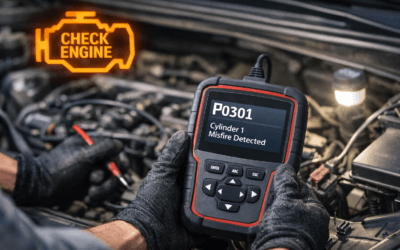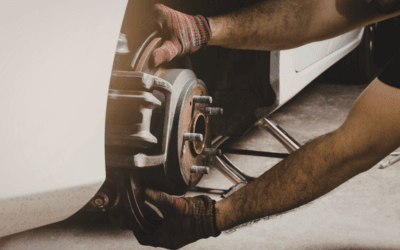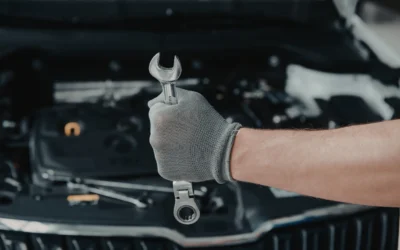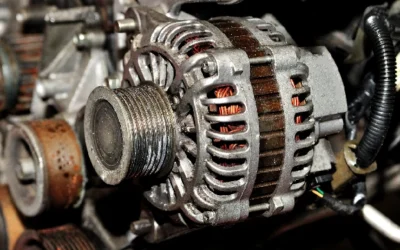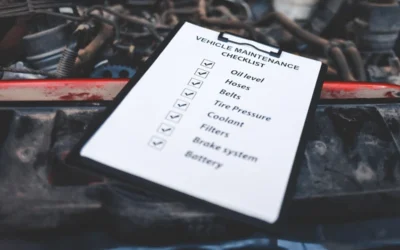What to Tell Your Mechanic: 7 Expert Tips for Effective Communication and Top-Notch Service
Effective communication with your mechanic is essential for ensuring that your vehicle receives the best possible care. When you’re clear and thorough about the issues you’re experiencing, you help your mechanic diagnose problems more accurately and provide more effective solutions. Here’s a comprehensive guide on what to tell your mechanic to achieve top-notch service and keep your vehicle running smoothly.
1. Describe the Problem in Detail
One of the most important things you can do when speaking with your mechanic is to provide a detailed description of the problem. The more information you offer, the better equipped your mechanic will be to diagnose and address the issue. Here’s how to break it down:
- Symptoms: Clearly describe what you’re experiencing. Is the car making unusual noises, vibrating, or experiencing poor performance? For example, “I hear a squealing noise when I brake” is more useful than just “My brakes seem off.”
- Frequency and Timing: Note when the problem occurs. Is it constant or intermittent? Does it happen only when you’re accelerating, braking, or turning? Mention any patterns you’ve observed, such as “The noise occurs mostly when I’m driving at low speeds.”
- Recent Changes: Inform your mechanic of any recent changes to your vehicle or driving habits. Have you recently installed new parts, changed your driving style, or been through a rough patch of road? For example, “I recently had new tires installed, and I’ve noticed a pulling to the right since then.”
2. Provide a History of Recent Repairs and Maintenance
Sharing a history of recent repairs and maintenance can be crucial for accurate diagnosis. This history helps your mechanic understand the context of the current issue and avoid redundant or conflicting repairs. Here’s what to include:
- Recent Repairs: Inform your mechanic about any recent repairs or services, including where they were performed and what was done. For example, “I had the transmission fluid replaced two months ago at another shop.”
- Maintenance Records: Provide information on routine maintenance tasks, such as oil changes, filter replacements, and tire rotations. This helps in determining if regular services are up to date.
- Previous Issues: Mention any previous problems that may be related to the current issue. For example, “I had a similar issue with my brakes last year, but it was fixed with new pads.”
3. Discuss Your Driving Habits
Your driving habits can impact your vehicle’s performance and maintenance needs. Providing information about how you drive helps your mechanic tailor their service to your specific situation. Consider discussing:
- Driving Conditions: Explain the typical conditions in which you drive, such as city driving, highway driving, or off-road conditions. For example, “I mostly drive on city streets with frequent stop-and-go traffic.”
- Driving Style: Describe your driving style, such as whether you tend to accelerate quickly, brake hard, or frequently drive in extreme temperatures. For instance, “I tend to drive aggressively and often make sudden stops.”
- Distance: Provide information on the average distance you drive daily or weekly. This can help your mechanic assess wear and tear on various components. For example, “I drive about 30 miles each way to work every day.”
4. Ask Questions and Seek Clarification
Effective communication is a two-way street. Don’t hesitate to ask questions and seek clarification about the repairs or services your vehicle needs. This ensures you understand what’s being done and why. Here’s how to approach it:
- Explain Issues Clearly: Ask your mechanic to explain any issues in layman’s terms if you’re not familiar with automotive jargon. For example, “Can you explain what the ‘cylinder head gasket’ does and why it needs replacing?”
- Request a Diagnosis: Request a thorough diagnosis and ask how the mechanic arrived at their conclusions. For example, “What tests did you perform to determine that my alternator is faulty?”
- Inquire About Alternatives: If a major repair is recommended, ask if there are alternative solutions or if the repair can be deferred. For instance, “Are there any less expensive options for fixing this issue?”
5. Set Clear Expectations and Budget
Being upfront about your expectations and budget can help ensure that the service provided meets your needs and financial constraints. Here’s how to manage this aspect:
- Communicate Your Budget: Let your mechanic know your budget for the repairs. This helps them prioritize work and suggest solutions within your price range. For example, “I’d like to keep the cost under $500 for this repair. Can we explore options?”
- Discuss Timelines: Ask how long the repair will take and if there are any factors that might affect the timeline. For instance, “How long will it take to complete this repair, and will there be any delays?”
- Get a Written Estimate: Request a written estimate before agreeing to any work. This ensures transparency and helps you avoid unexpected costs. For example, “Can you provide a written estimate for the repair costs and labor?”
6. Document Any Warning Lights or Dashboard Indicators
Dashboard warning lights and indicators are important clues about your vehicle’s condition. If any lights or messages have appeared, make sure to document and report them to your mechanic:
- Warning Lights: Note any warning lights that have been illuminated on your dashboard, such as the check engine light, ABS light, or oil pressure light. For example, “The check engine light came on last week and has been on intermittently since then.”
- Dashboard Messages: Report any messages or alerts displayed on your vehicle’s information screen. For example, “The dashboard is showing a message that says ‘Tire Pressure Low.’”
- Observations: Share any unusual behavior associated with these indicators, such as performance issues or changes in handling.
7. Be Honest About Your Vehicle’s History
Honesty about your vehicle’s history helps your mechanic provide more accurate and effective service. Concealing information about past issues or modifications can lead to misdiagnosis or unnecessary repairs. Here’s what to be open about:
- Accidents and Damage: Disclose any previous accidents or damage to your vehicle, even if it was minor. For example, “My car was involved in a minor fender-bender six months ago, and the front bumper was replaced.”
- Modifications: Inform your mechanic of any aftermarket modifications or customizations. For instance, “I had an aftermarket stereo system installed, and I’m having issues with the electrical system.”
Top-notch service with Yorba Linda Auto Service!
Effective communication with your mechanic is essential for achieving top-notch service and ensuring your vehicle’s optimal performance. By providing detailed descriptions of problems, sharing recent repair history, discussing driving habits, asking questions, setting clear expectations, documenting warning lights, and being honest about your vehicle’s history, you help your mechanic diagnose and address issues more accurately.
At Yorba Linda Auto Service, we prioritize clear communication and transparency in every service we provide. If you have any concerns or questions about your vehicle, don’t hesitate to reach out. Our expert technicians are here to ensure that your car receives the best care possible. Schedule an appointment today and experience the difference that effective communication can make in keeping your vehicle running smoothly and reliably.



